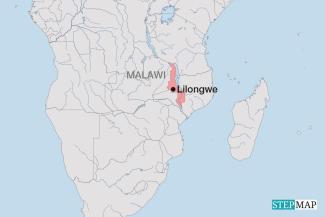Malawi
Over half a million children are suffering from malnutrition

Malita Jonasi has a baby girl, Mariam Chikondi, aged one and a half years old. The girl has been suffering from malnutrition for some months because the mother cannot afford proper food for her. In the last harvest season, 20-year-old Jonasi did not harvest much to feed her family mainly because of floods that hit the Machinga district in the southern region of the country where she lives.
“My child is undernourished, and I cannot even breastfeed her because I am not feeling ok,” the young mother says, who is also suffering from malnutrition. Every week, Jonasi takes her child to attend the under-five clinic at the Zumulu health centre in her district. At the clinic, children who are undernourished are given some food and those who are sick are treated for diseases such as Kwashiorkor, a form of severe protein malnutrition.
“Doctors advise me to give my children nutritious foods, but the problem is that I cannot afford them. I do not have the money and my crops were washed away by floods,” Jonasi says. Her child Mariam is one of over half a million other children under the age of five who are suffering from malnutrition in Malawi.
To help address the problem the German government recently made an additional funding of € 5 million towards the Scaling Up Nutrition (SUN) programme that Malawi has been implementing since 2011. The funding, according to the ministry of health, is expected to benefit Malawians in the five districts of Phalombe, Nsanje, Blantyre, Dowa and Lilongwe and will focus on addressing increasing levels of malnutrition.
Khumbize Kandondo-Chiponda, the minister of health, says that the money will help address the problem of stunting and improve people’s “livelihoods and build resilience among the communities and households to promote optimal nutrition among our children, adolescents, women and other vulnerable groups”.
On her part, the German Ambassador to Malawi Ute König says that the grant will protect hard-won nutrition gains Malawi has achieved over the years. According to UNICEF, Malawi has made significant gains in eradicating undernutrition over the past years, “reducing stunting among under-five children from 37 % in 2016 to the current 33 %”.
But this is not enough. With the rising cost of living because of multiple crises, millions of Malawians including Mariam will continue facing serious food insecurity if no bail-out comes their way. The government and its partners must do more to remedy the situation.
Raphael Mweninguwe is a freelance journalist based in Lilongwe.
raphael.mweninguwe@hotmail.com












